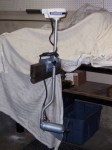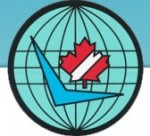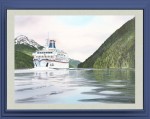Hi all. Our lovely blog master asked if I would make a guest post now and then, and, since the world as I appreciate it is where everyone listens to me, of course I said “yes!”
By way of introduction, I’ll post a letter that I sent to Hon. Mr. Keith Ashfield, Minister of the Department of Fisheries and Oceans, on the topic of Marine Communications and Traffic Services cutbacks. This blog has already posted on this topic, but I thought I would add my voice.
I also sent a copy to my MP Jean Crowder. Ms Crowder responded promptly. She thanked me for my concern, and linked me to a letter her party has already sent on the matter. I have yet to hear back from Hon. Mr. Ashfield, or his office.
Dear Hon. Mr Keith Ashfield,
I am writing because I feel very concerned about proposed government cuts to Coast Guard’s Marine Communication and Traffic Services. In an effort to save costs, the Coast Guard has proposed slashing overtime and holiday time for its operators, leaving the BC’s MCTS stations vulnerable to understaffing. Continue reading Shiny New Guest Blogger, Bearing a Letter







